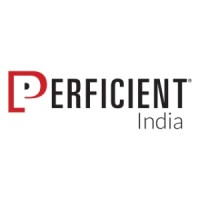Description
Core Responsibilities:
- Strategic Planning: Align with the organization's business strategy & goals as well as their data & technology landscape
- Strategic Planning: Identify and define business capabilities to guide target architecture
- Strategic Planning: Coordinate client-facing Thought Leadership program, including identifying and prioritizing opportunities with client stakeholders, developing points of views, proofs of concept, and other supporting documentation, and facilitating workshops and presentations for topics/initiatives.
- System Design: Define the overall architecture, identify and evaluate risks; and perform assessments and gap analysis; consider options and tradeoffs
- System Design: Ensures scalability, security, maintainability, and performance.
- System Design: Identify Integration with enterprise systems, third parties, and data sources.
- Technology Evaluation: Drive and own the selection of appropriate technologies, frameworks, and tools for platform implementation.
- Standards and Guidelines: Manage reference architecture patterns, methodologies, processes, workflows.
- Standards and Guidelines: Establish and enforce platform standards, coding practices, and guidelines.
- Stay up to date on the latest trends and best practices.
Potential Responsibilities:
- Strategic Planning: Guide creation of integrated business and technology roadmap
- Strategic Planning: Create alignment between IT and business stakeholders
- Strategic Planning: Support sales pursuit activities as required.
- Collaboration: Lead the design and implementation of the platform, ensuring scalability, security, maintainability, and performance.
- Collaboration: Collaborate with developers, designers, and other stakeholders throughout the development lifecycle.
- Collaboration: Mentor and guide junior team members and client resources.
- Technology Evaluation: Oversee platform selection and implementation of the platforms
- Governance: Definition and assurance to standards for technical documentation, communications, nomenclature, design documents, ensuring consistency, readability, and completeness.
- Risk Management: Provide oversight for all aspects of ongoing operations, maintenance and management of the solution domain
QUALIFICATIONS
- A bachelor’s degree in computer science, Information Technology, or a related field is preferred.
- Minimum 10+ years of experience in enterprise architecture, software development, or a combination of both.
- Proven experience in designing and implementing complex enterprise-level software solutions.
- Experience working with development frameworks and technologies is a plus.
- Strong understanding of security best practices and data governance principles.
- Excellent communication, collaboration, and problem-solving skills.
- Ability to think strategically and translate business needs into technical solutions.
- Experience architecting enterprise level custom applications utilizing cloud platforms such as AWS, Azure, or GCP. Experience with platforms such as Adobe, Salesforce, and Commerce (such as HCL Commerce)
- Proficiency in relevant architecture modeling tools (e.g., UML, ArchiMate)
Key Skills
Education
Bachelor's Degree
- Posted On: 14 days Ago
- Experience: 10+ years of experience
- Availability: Remote
- Openings: 1
- Category: Solution Architect
- Tenure: Flexible Position

